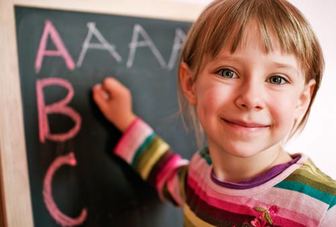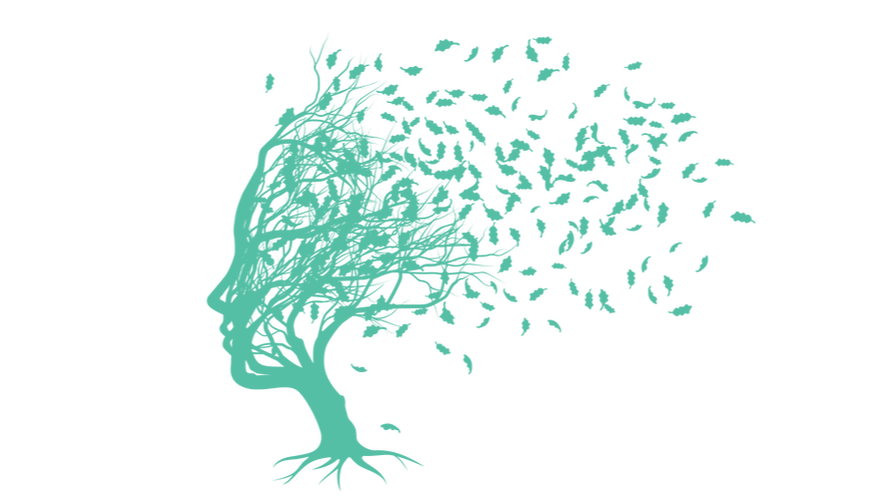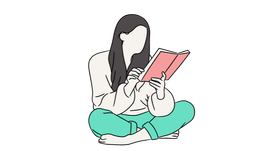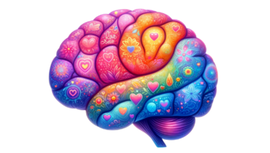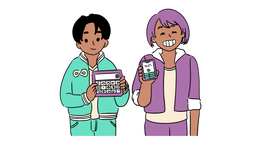Our Approach to Therapy
Therapy Center of Buda is rooted in affirming and inclusive therapy. We prioritize creating a supportive and positive environment for all our clients. Here are some key features:
- Affirming Environment: We believe in celebrating each individual's unique strengths and experiences. Our therapists are committed to providing care that is respectful, affirming, and empowering.
- Personalized Care: Each therapy plan is tailored to meet the specific needs and goals of our clients. We focus on holistic, person-centered strategies to support their growth and well-being.
- Compassionate Support: Our team is dedicated to fostering a warm and compassionate atmosphere. We understand the importance of emotional safety and strive to build trusting, supportive relationships with our clients and their families.
- Inclusive Practices: We embrace diversity and are committed to inclusive practices that respect all backgrounds, identities, and abilities. Our goal is to ensure everyone feels valued and understood.
OccupationalOccupational therapy addresses anything pertaining to a client's occupation. For children their occupation is playing and learning. These areas may include; gross motor (balance, coordination), fine motor skills, self-care, activities for daily living, sensory processing, vision perception, hand-eye coordination, and handwriting. Read more
|
Speech-LanguageSpeech-language therapy addresses a variety of areas including; cognition (thinking, organization, executive functioning), speech (pronunciation), language (understanding and using), processing, social skills (without masking), stuttering, voice, nutrition intake/ feeding, alternative forms of communication, reading skills, narrative language (story telling), written language, self-acceptance, self-advocacy, and introspection. Read more
|
Specialized Needs We Support
AutismAutistic children don't need therapy to address Autism itself. Autism is a neurotype, not a sickness. Some Autistic individuals benefit from Occupational and Speech- Language Therapy to help improve overall functional communication (spoken/non-spoken), self-advocacy, social skills (without masking), sensory health, interoception, burnout recovery, life transitions, exploration and understanding of their neurotype, trauma recovery (see below), managing inter-family relationships and fostering compassion and understanding. Amy Grant is trained in the administration of the Autism Diagnostic Observation Schedule (ADOS-2) and the Gilliam Autism Rating Scale (GARS-3) in order to identify if an individual is Autistic. She also has developed testing to help identify the PDA profile and Autistic Masking. Testing remains affirming and strength-based. TCOB practices within the neurodiversity model and supports the neurodiversity movement.
|
ADHDADHD is a neurotype that, when understood, individuals can benefit from therapy that focuses on sensory needs, especially over stimulation or sensory-seeking behavior. Therapy can also help identify regulation techniques so the individual is able to focus, organize, plan and implement effective actions to obtain a goal. Speech-language and occupational therapies also address executive functioning, interoception, organizational/ study skills, and neurotype exploration/acceptance. School accommodations and family collaboration are also explored within therapy. (Also see ND Trauma)
|
DyslexiaChildren with Dyslexia, and other reading disorders, benefit from Speech-Language Therapy because Dyslexia is a language based disorder. Private therapy is one-on-one and will allow your child to receive an individualized plan of action to increase reading success at school and at home. We also provide diagnosis of Dyslexia and other reading disorders through thorough language testing and utilizing the Test of Integrated Language and Literacy Skills™ (TILLS™).
|
ND TraumaTrauma-based services for neurodivergent individuals aim to provide specialized support tailored to their unique needs, including addressing burnout, shutdowns, school refusal, inadequate accommodations/supports at school and/or home, family collaboration, and trauma stemming from invalidation and behavioral conditioning (e.g., ABA). These services prioritize creating safe environments where individuals can explore coping strategies, develop resilience, and process past traumas, fostering holistic healing and empowerment. By recognizing and validating their experiences, these services strive to mitigate the impact of past traumas and promote self-advocacy and well-being.
|
Behavior IssuesBehavior is communication. Behaviors viewed as "bad" are often signs of a frustrated or dysregulated child. Underlying issues related to language and sensory processing can be addressed which subsequently minimizes behavior issues both at school and at home. We also support neurodivergent shutdown and burnout with education and recovery. School refusal, physiological illnesses resulting in extreme burnout, and Pathological Demand Avoidance (PDA)-- often misdiagnosed as "oppositional defiance" are all areas that require significant and particular supports, often a reframing of caretaker perspective and extreme acceptance.
|
AAC
Sometimes people choose to or cannot use spoken word to fully communicate their wants, needs, and thoughts. We believe that doing so is a right that every human has. We provide prerequisite-free access to AAC devices with robust vocabularies. We believe that communication using AAC is valid and should be supported. Should the client prefer a personal speech generating device (SGD) we assist in the application, acquisition, programming, and education process.
|
Contact us if you are concerned about your child's development or if they were diagnosed with any of the following:
Apraxia/Dyspraxia (oral, verbal, and body) | Autism | Cerebral Palsy (CP) | Cerebral Vascular Accident (stroke) | Cognitive Impairment Speech Delay | Developmental Disability | Down Syndrome | Encephalopathy | Cleft Lip/Palate | Global Developmental Delay |Hydroencephalopathy | Dyslexia/ reading disorder | Articulation or Phonological Disorder | Traumatic Brain Injury (TBI) | Dysgraphia
Methodologies
We select from the best methodologies to create personalized programs for your child. We are trained in many different protocols and methods. We believe that no therapeutic program is without ableism nor is fully pro-neurodiversity. So, we develop individualized programs for each client that are evidence- based and depended on their needs. We are trained with the following programs that we frequently modify to be pro-neurodiversity.
DIRFloortime ® | Handwriting | Without Tears ®| How Does Your Engine Run ® It Takes Two to Talk ® | Kaufman K-SLP ® | SCERTS ®
DIRFloortime ® | Handwriting | Without Tears ®| How Does Your Engine Run ® It Takes Two to Talk ® | Kaufman K-SLP ® | SCERTS ®

